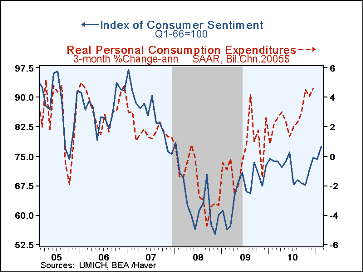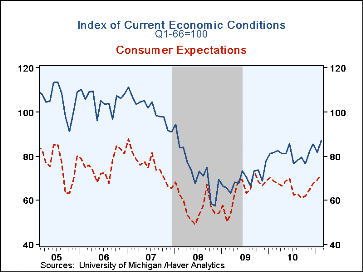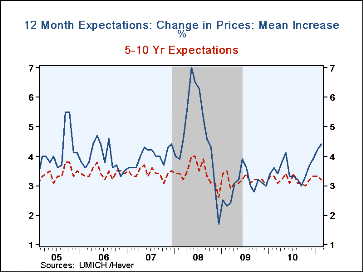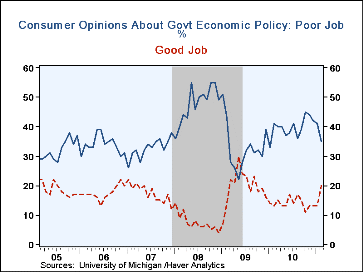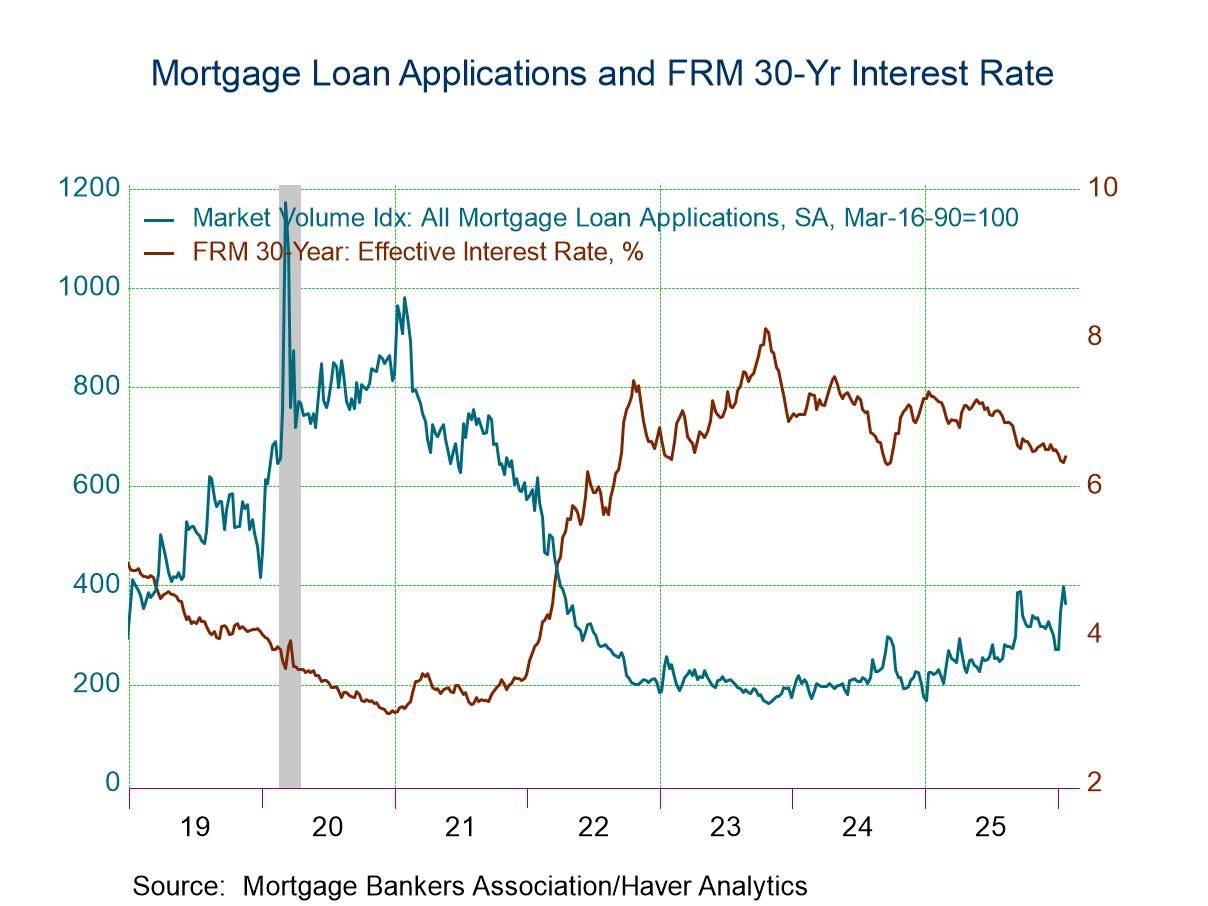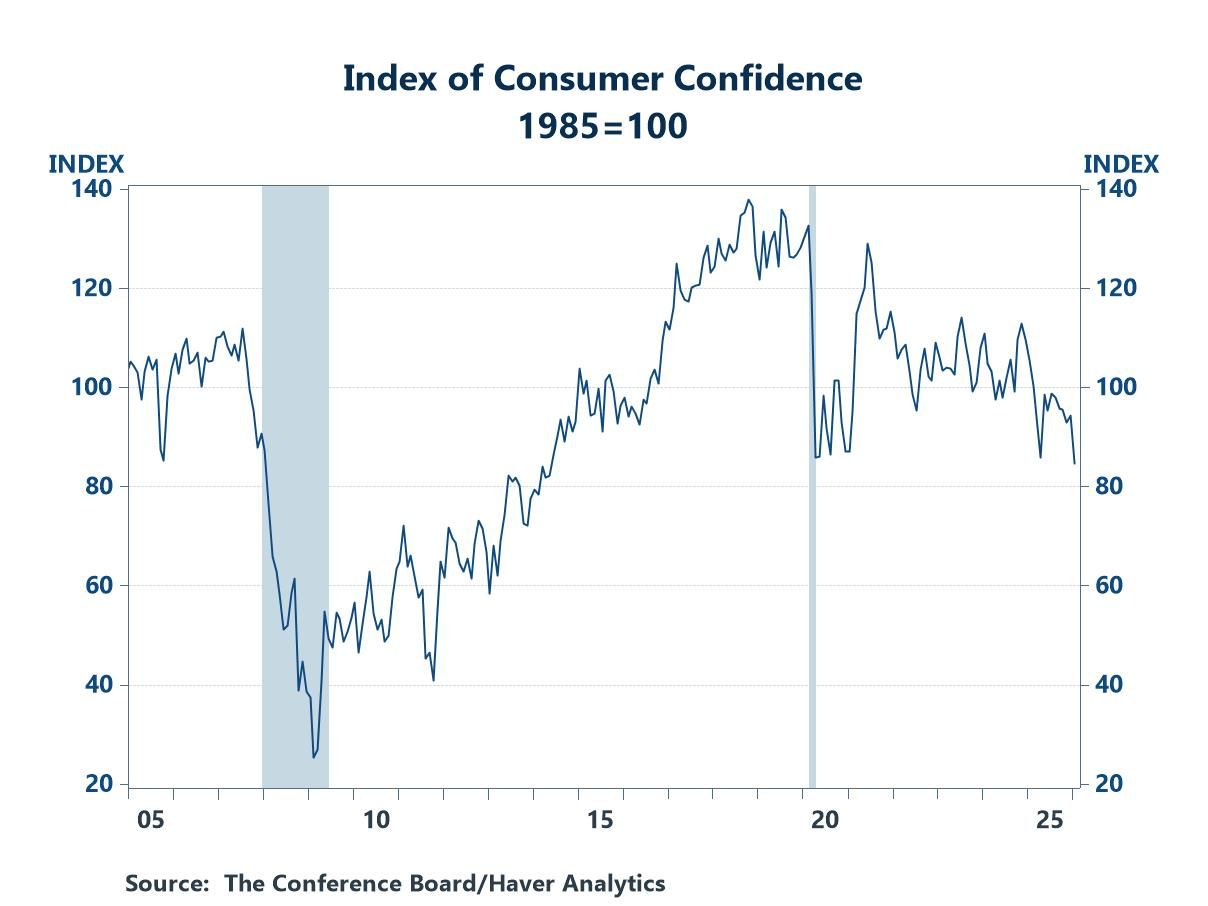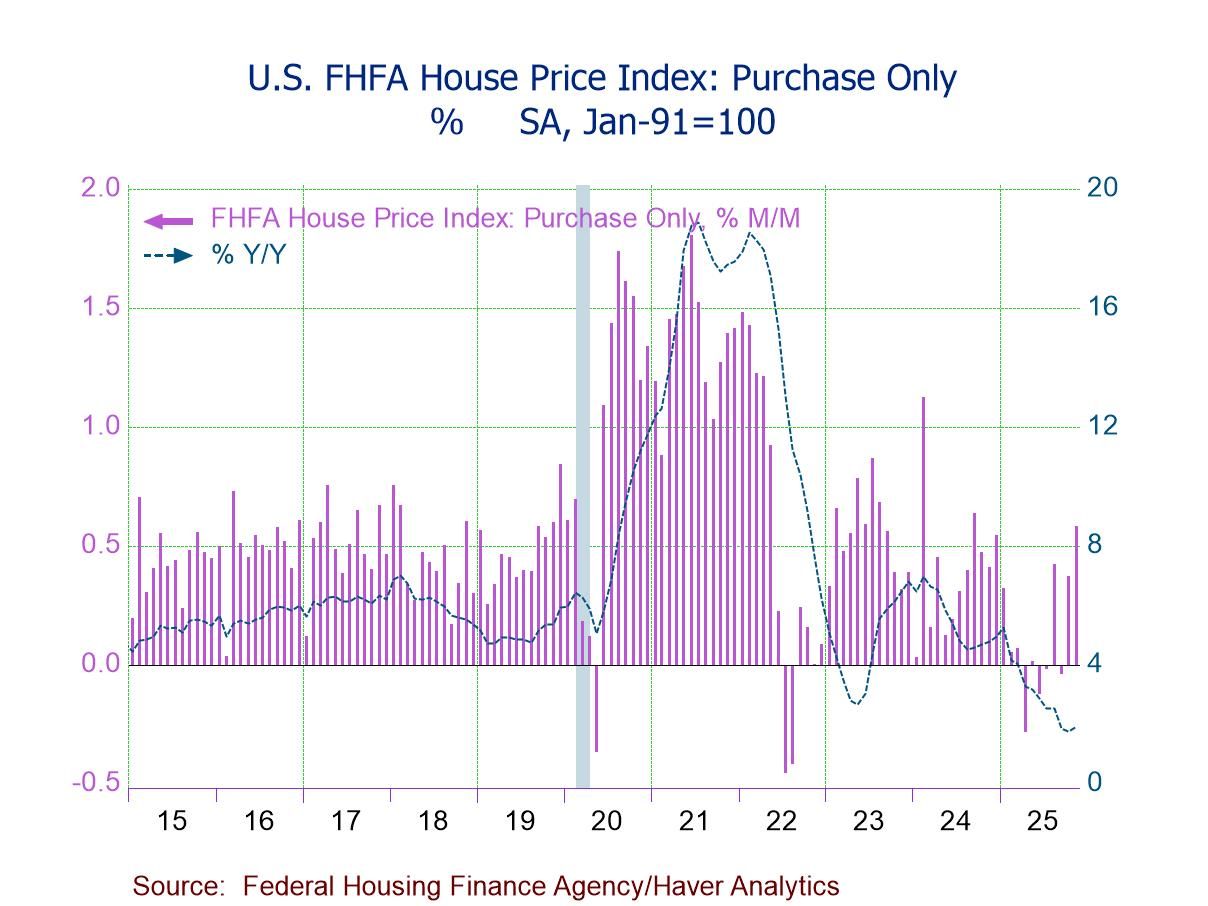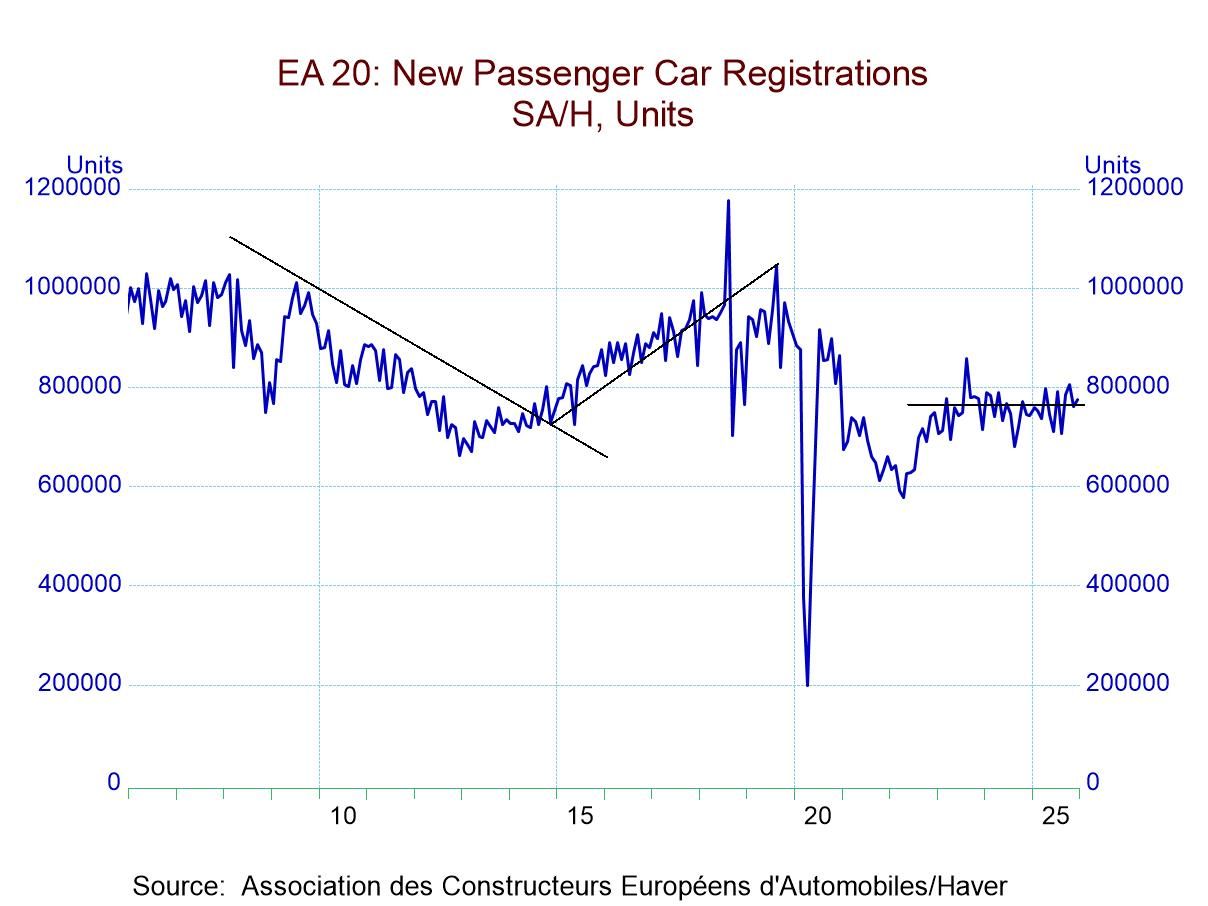 Global| Feb 25 2011
Global| Feb 25 2011U.S. Consumer Sentiment Firms Since Mid-Month
by:Tom Moeller
|in:Economy in Brief
Summary
Consumers' spirits improved markedly during the last two weeks. The full-month February reading of consumer sentiment from the University of Michigan rose to 77.5 and easily beat expectations for 75.3. The reading also was improved [...]
Consumers' spirits improved markedly during the last two weeks. The full-month February reading of consumer sentiment from the University of Michigan rose to 77.5 and easily beat expectations for 75.3. The reading also was improved from the mid-month read of 75.1 and it remained near its highest since June. During the last ten years there has been a 68% correlation between the level of sentiment and the three-month growth in real consumer spending.
The expectations component of consumer sentiment improved greatly from mid-month and rose 3.3% from January instead of falling 2.5% as reported earlier. Gains in expectations of personal finances over the next year improved, as did the reading of business conditions during the next year and the next five years. The February index of current economic conditions estimate was little-changed from mid-month, and rose 6.2% to its highest level since January 2008. The reading of current personal finances improved another 7.1% to its highest since March 2008. Also, the reading of buying conditions for large household goods, like appliances and furniture, recovered half of its January decline.
Expected price inflation during the next year was 4.4%, down from 4.5% at mid-month. As oil prices strengthened, the latest reading was the highest since September 2008. However, during the next five-to-ten years, inflation is expected to average just 3.2%. Respondents' view of government policy, which may eventually influence economic expectations, recovered after earlier weakness and rose to its highest since August. A much-improved 20 percent of respondents thought that a good job was being done by government while a lessened 35% thought a poor job was being done.
The Reuters/University of Michigan survey data are not seasonally adjusted. The readings are based on telephone interviews with just over 300 households during early-to-mid November. The summary indexes are in Haver's USECON database with details in the proprietary UMSCA database. The expectations figure is in Haver's AS1REPNA database.
| University of Michigan (Q1'66 = 100) | Feb | Mid Feb |
Jan | Dec | Feb Y/Y |
2010 | 2009 | 2008 |
|---|---|---|---|---|---|---|---|---|
| Consumer Sentiment | 77.5 | 75.1 | 74.2 | 74.5 | 5.3% | 71.8 | 66.3 | 63.8 |
| Current Economic Conditions | 86.9 | 86.8 | 81.8 | 85.3 | 6.2 | 81.0 | 69.6 | 73.7 |
| Personal Finances | 91 | 81 | 85 | 80 | 21.3 | 79 | 67 | 78 |
| Buying Conditions For Large Household Goods | 133 | 133 | 126 | 140 | -2.2 | 130 | 112 | 112 |
| Expectations | 71.6 | 67.6 | 69.3 | 67.5 | 4.7 | 65.9 | 64.1 | 57.3 |
| Expected Change In Personal Finances | 114 | 111 | 110 | 112 | 4.6 | 110 | 113 | 107 |
| Business Conditions Next 12 Months | 85 | 78 | 87 | 79 | 6.3 | 75 | 65 | 48 |
| Business Conditions Next 5 Years | 87 | 81 | 80 | 78 | 3.6 | 79 | 78 | 73 |
Tom Moeller
AuthorMore in Author Profile »Prior to joining Haver Analytics in 2000, Mr. Moeller worked as the Economist at Chancellor Capital Management from 1985 to 1999. There, he developed comprehensive economic forecasts and interpreted economic data for equity and fixed income portfolio managers. Also at Chancellor, Mr. Moeller worked as an equity analyst and was responsible for researching and rating companies in the economically sensitive automobile and housing industries for investment in Chancellor’s equity portfolio. Prior to joining Chancellor, Mr. Moeller was an Economist at Citibank from 1979 to 1984. He also analyzed pricing behavior in the metals industry for the Council on Wage and Price Stability in Washington, D.C. In 1999, Mr. Moeller received the award for most accurate forecast from the Forecasters' Club of New York. From 1990 to 1992 he was President of the New York Association for Business Economists. Mr. Moeller earned an M.B.A. in Finance from Fordham University, where he graduated in 1987. He holds a Bachelor of Arts in Economics from George Washington University.


